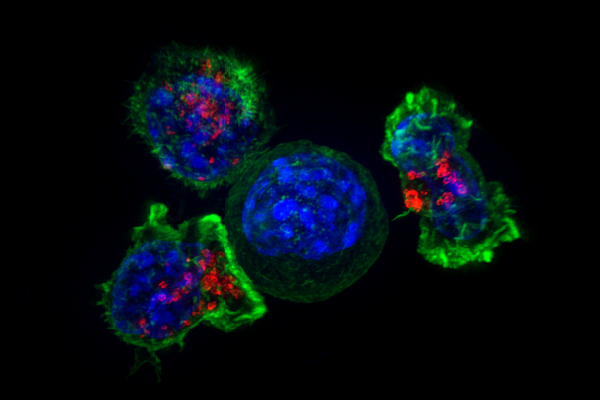Prozac fights deadly childhood brain cancer

The anti-depressant drug Prozac could be used to tackle one of the deadliest childhood tumours and possibly other types of cancer, scientists said.
Fluoxetine—the chemical name for Prozac—works to fight the highly aggressive neuroblastoma, which is most common in young children.
The breakthrough led by Brunel University London could spare young patients treatment with highly toxic cocktails of chemotherapy drugs and radiation.
"Prozac has the potential to be used in children with neuroblastoma as a new and effective anti-cancer drug, but with less toxicity than current cancer treatments," said Professor Arturo Sala.
Publishing the results today in Oncogenesis, the team show Prozac can stabilise a protein encoded by the gene CDKN1B that kills neuroblastoma cells and slows their growth. And crucially, the doses needed are safe for children, which they call 'a major clinical advance'.
Researchers found significantly fewer metastases (when cancer spreads from one part of the body to another) in organs such as liver, kidneys and bone marrows in mice on Prozac.
The idea to use Prozac to treat cancer came after previous studies found people on long-term treatment for psychotic illnesses have lower cancer rates.
Working with Italy's D'Annunzio University of Chieti–Pescara, they made the discovery using a gene-editing tool called CRISPR. CRISPR let them target the CDKN1B gene, which is downregulated in cancers with mutation of the oncogene MYC, such as neuroblastoma.
Prozac could potentially treat other cancers too, said Prof Sala: "Since Prozac targets MYC-expressing cancer cells, it could possibly be used to treat a wide range of human cancers with high MYC expression, for example big killers such as breast cancer or prostate cancer."
Neuroblastoma is the most commonly diagnosed cancer in the first year of life and is responsible for most cancer deaths in babies. Even with surgery, radiotherapy and chemotherapy, the average patient with high-risk metastatic disease lives less than 3 years. Relapse is common, so finding a less toxic drug to prolong remission could be life-changing.
The results, Prof Sala said, "warrant the opening of clinical trials in which long-term Prozac treatments could be included in consolidation or post-consolidation therapies in patients who are at high risk of disease relapse".
More information: Sandra Bibbo' et al. Repurposing a psychoactive drug for children with cancer: p27Kip1-dependent inhibition of metastatic neuroblastomas by Prozac, Oncogenesis (2020). DOI: 10.1038/s41389-019-0186-3


















